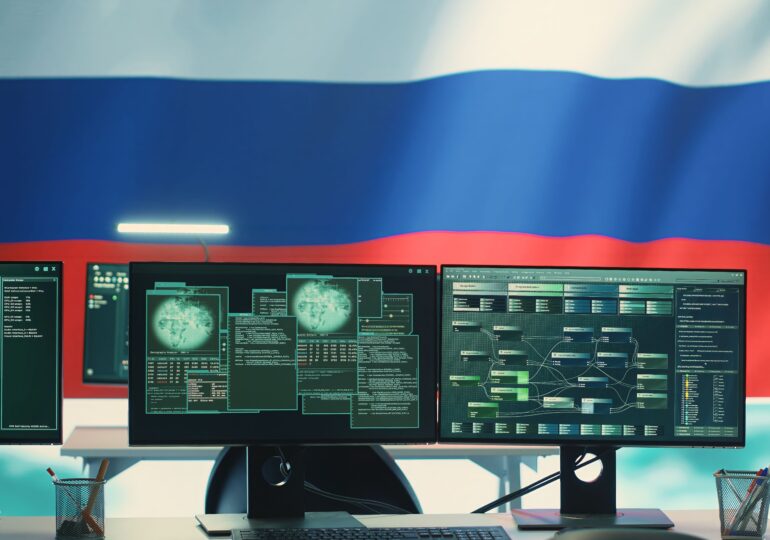In a video broadcast by Russian state television in February 2024, Russian activist Anna Kiryakova reads verses glorifying the invasion of Ukraine. The event takes place at the Russian cultural center in Washington, D.C., and the symbol „Z” on the book cover – often equated with the swastika by critics of the Putin regime – suggests a direct affiliation with Kremlin’s war propaganda.
The paradox is evident: in the midst of the US-Russia negotiations to stop the conflict, a Russian institution hosts a reading of militaristic poetry right in the American capital.
It is just one of the many episodes that show how the "Russian Houses" continue to operate unhindered in dozens of capitals, including in Europe and the USA.
Cultural centers or tools of geopolitical influence?
Officially, these centers, under the umbrella of the Rossotrudnichestvo agency, promote Russian culture, language, and education. In practice, they are increasingly accused of spreading propaganda, disinformation, and even spying in host countries.
Although the European Union sanctioned Rossotrudnichestvo in 2022, the "Russian Houses" are still active in Berlin, Paris, Rome, Madrid, Vienna, Prague, and Chisinau.
An investigation by the publication Kyiv Independent showed that these centers operate in a legal gray area, taking advantage of bilateral agreements and the protection provided by the diplomatic status of the personnel.
"It has never been perceived as a serious threat," said Dmitry Valuev, a US activist and leader of the organization Russian America for Democracy in Russia.
The immunity protecting propagandists
In many cases, the directors of cultural centers are employees of Russian embassies and benefit from diplomatic immunity.
In Berlin, a 2023 investigation by German prosecutors against director Pavel Izvolsky was closed precisely for this reason. However, a broader investigation continues, targeting other individuals involved.
The connection to Rossotrudnichestvo is hard to hide, even though Russian officials try to downplay it.
Until 2022, the websites of the centers in Berlin and Paris directly acknowledged the agency as the parent entity. Archives show that even the center in Washington was listed as "subordinate" to it.
Opaque funding, intense activity
In the absence of local legal registration, the "Russian Houses" do not have transparent bank accounts. Ukrainian journalists discovered that even in Kyiv, the center did not have official accounts. In Berlin, director Izvolsky vaguely stated that "there are certain procedures for online payments."
So far, the EU has not clarified whether maintaining these centers violates sanctions. Olof Gill, spokesperson for the European Commission, said that the enforcement of sanctions is the responsibility of each member state.
"For real impact, firm actions from host countries are needed," emphasized Nadia Koval, an expert at the Ukrainian Institute.
Direct links to Russian espionage
Several directors of the "Russian Houses" have been suspected of espionage activities. In 2018, the Trump administration expelled Oleg Zhiganov, the head of the center in Washington, accused of working undercover for Russian intelligence services.
His predecessor, Yury Zaytsev, allegedly monitored Americans participating in Russian cultural programs to later recruit them as agents.
Similar cases have been reported in Denmark, where Aleksey Nikiforov, a researcher at the Technical University of Denmark, was convicted of espionage for Russia. He had actively participated in events organized by the Russian cultural center in Copenhagen.
The Insider reported that Izvolsky, the current director in Berlin, had lived in a dormitory of a Russian military academy known for training intelligence officers.
Countries that said "no"
Despite the difficulties, several countries have managed to close the centers. In 2023, Romania granted a six-month deadline for the evacuation of the center in Bucharest, then expelled 40 Russian diplomats, thus forcing the suspension of activities.
Denmark resorted to a similar tactic: after the expulsion of 25 Russian officials, the center ceased to exist.
"They forced us to leave," the center acknowledged in its final post on Facebook.
In Moldova, although authorities announced the closure of the center in Chisinau in February 2024, it continues to operate. Russia quickly replaced the expelled director with another, Artyom Naumenkov, who refused any dialogue with the press.
United States, hesitant
In the US, the center reopened in December 2022 after a year and a half break. Since then, it has even organized events in honor of the illegal annexation of Crimea, and its activities continue unabated.
Although some participants come from the Russian diaspora, among the guests are also Americans from the academic and cultural environment. Some of them formed in the '90s the organization Friends of the Russian Cultural Center, which funded the renovation of the headquarters in Washington.
For activist Dmitry Valuev, the role of the center is clear: "They build networks, shape the American public opinion in favor of the Kremlin. Whether we talk about business, religion, cultural programs, or education - everything is used as a tool of influence."

